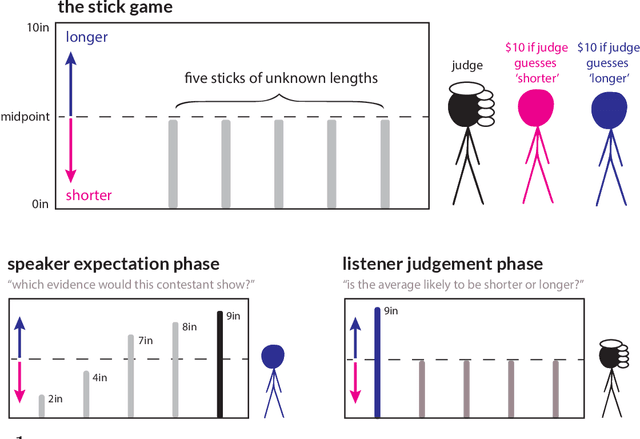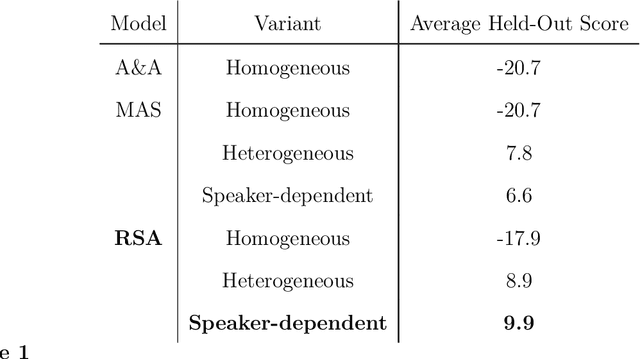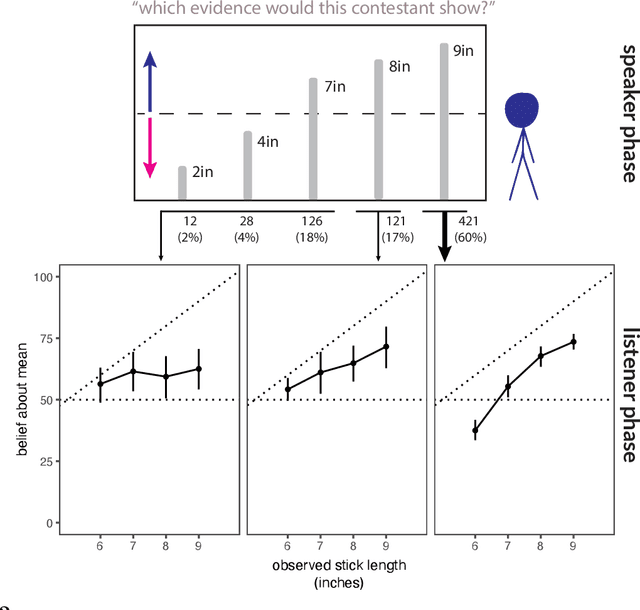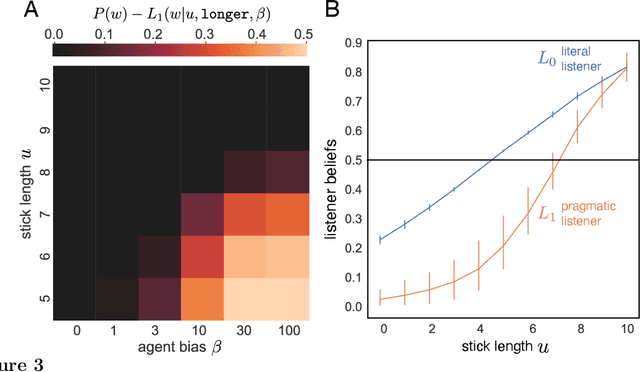A pragmatic account of the weak evidence effect
Paper and Code
Dec 07, 2021



Language is not only used to inform. We often seek to persuade by arguing in favor of a particular view. Persuasion raises a number of challenges for classical accounts of belief updating, as information cannot be taken at face value. How should listeners account for a speaker's "hidden agenda" when incorporating new information? Here, we extend recent probabilistic models of recursive social reasoning to allow for persuasive goals and show that our model provides a new pragmatic explanation for why weakly favorable arguments may backfire, a phenomenon known as the weak evidence effect. Critically, our model predicts a relationship between belief updating and speaker expectations: weak evidence should only backfire when speakers are expected to act under persuasive goals, implying the absence of stronger evidence. We introduce a simple experimental paradigm called the Stick Contest to measure the extent to which the weak evidence effect depends on speaker expectations, and show that a pragmatic listener model accounts for the empirical data better than alternative models. Our findings suggest potential avenues for rational models of social reasoning to further illuminate decision-making phenomena.
 Add to Chrome
Add to Chrome Add to Firefox
Add to Firefox Add to Edge
Add to Edge